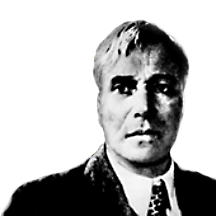Joshua Lederberg was born in New Jersey in 1925. He received his doctorate from Yale University, served as Professor of Genetics at the University of Wisconsin, head of the Genetics Department at Stanford University and director of the Kennedy Laboratories for Molecular Biology and Medicine in California.
In 1958 Joshua Lederberg won the Nobel prize in Physiology or Medicine “for his discoveries concerning genetic recombination and the organization of the genetic material of bacteria.”
Until 1946 scientists thought that bacteria could not engage in sexual reproduction, or in other words pass on genetic material. Lederberg and his colleagues carried out an experiment in which, as a result of mixing two e-coli bacteria strains, they obtained a new strain that had characteristics inherited from the two “parent” strains. This experiment verified the existence of genetic recombination in bacteria. Later on Lederberg discovered that the genes of the e-coli bacteria are arranged in a linear structure, analogous to chromosome structure in animal or plant cell nuclei.
Joshua Lederberg’s discoveries opened up a fertile field of research for geneticists, who used bacteria to study the basic mechanisms of inheritance in more developed life systems, such as humans.
proved that germs engage in sexual reproduction.




